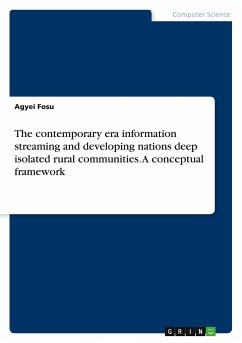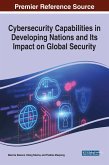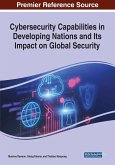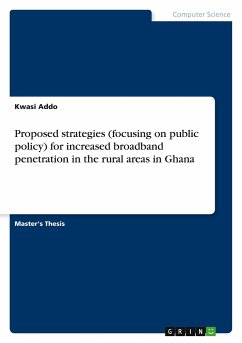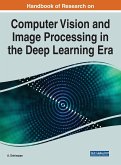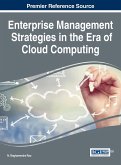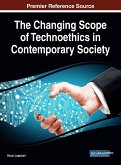Document from the year 2022 in the subject Computer Science - Commercial Information Technology, grade: N/A, Nelson Mandela Metropolitan University (School of Information Technology), course: PhD-IT, language: English, abstract: The scope of the book is to examine developing nations deep isolated rural communities¿ information exchange environment, some models that explain information search patterns, information needs, and perception on ICT is needed. The book begins by examining several models on information needs, information sources, patterns of seeking information, uptake, and use of technological innovations to establish and explain the constructs of the conceptual framework in chapter one. Chapter two introduces the constructs underpinning the framework. The constructs include information needs, information seeking patterns and perception of ICT. Maepa (2000) assert that once individual outlined his or her needs with regards to the required information, then directly or indirectly the individual positions themselves to identify the source(s), media, or channels to access the information require. The framework give insight that by examining developing nations deep isolated rural communities¿ information needs, information seeking patterns will define the behavioural intention as to access to the types of ICT and usage. Again, assessing perception on ICT and whether they perceive its use to beneficial will lead to individual intention to access certain ICT innovation. Chapter three details of the technical stages of the framework are given. It covers the generalisation of the framework, theorising the framework as well as the use of Design Science research paradigm in the development and evaluation of the framework. In chapter four detailed explanation of the practical implementation of the framework in rural communities¿ communication strategies designs are outlined, along with empirical case studies of rural small-scale farmers in Amathole District Municipality (ADM) of South Africa. This book has been derived from the author PhD work submitted to Nelson Mandela University South Africa. The book can be used as a support course material in graduate and undergraduate research work around conceptual frameworks design and analysis.

